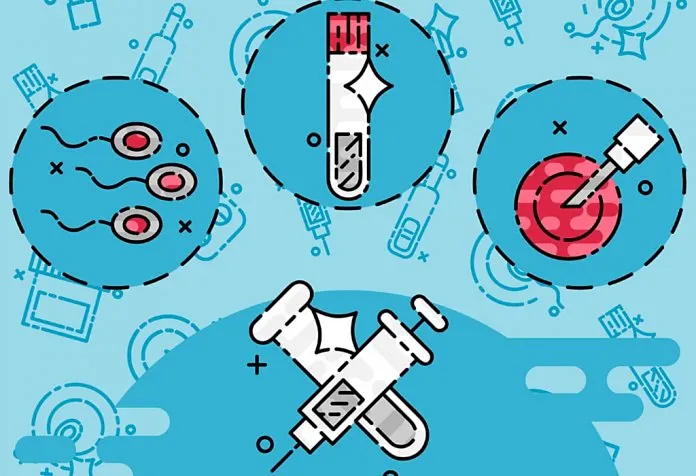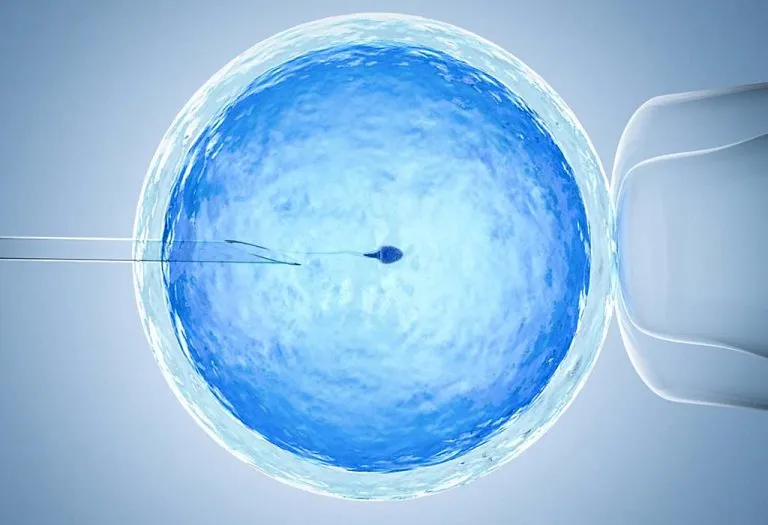Can Birth Control Make You Infertile? – Know the Facts

- Can Birth Control Cause Infertility?
- How Can Birth Control Negatively Impact Your Long-term Fertility?
- Signs of Infertility
- How Long Does It Stay in Your Body?
- FAQs
Birth control pills are one of the most preferred options in contraceptives to prevent any unwanted surprises. These pills are not only used by women for the prevention of pregnancy sometimes but also for curing PCOS, endometriosis, acne, irregular menstrual cycle, PMS and other such issues. However, many of you, who may have been taking birth control pills for a while now, may wonder if these pills could make conception difficult for you or take a toll on your fertility, in case you plan to get pregnant or even otherwise. We understand your concern, and that’s why we’ve covered all the information you need on birth control pills and its effects on fertility. So, does birth control make you infertile? Read on to know more about this!
Can Birth Control Cause Infertility?
Does contraception make you infertile? There is no strong evidence that birth control causes permanent infertility, as most women regain their fertility soon after stopping hormonal or non-hormonal methods. However, some forms—particularly long-acting contraceptives like injections—may delay the return to normal ovulation for several months. Temporary side effects, such as irregular cycles or hormonal adjustments, can occur post-discontinuation, but these typically resolve within a few months. In rare cases, underlying conditions (like PCOS or endometriosis) may become noticeable after stopping birth control, leading to misconceptions that contraception caused infertility. If conception doesn’t occur within a year (or six months for women over 35), consulting a doctor can help identify any unrelated fertility issues (1).
How Can Birth Control Negatively Impact Your Long-term Fertility?
Birth control methods, both hormonal and non-hormonal, are generally reversible, but some may have temporary or lasting effects on fertility. Here’s how different types of birth control could impact long-term fertility:
1. Hormonal Birth Control (Pills, Patches, Rings, Injections, Implants)
- Hormonal Imbalance: Prolonged use can suppress the body’s natural hormone production, leading to delays in ovulation returning after discontinuation. This is a well-known long-term side effect of birth control pills on fertility.
- Menstrual Cycle Disruption: After stopping hormonal birth control, some women experience irregular or absent periods for several months before their cycle normalizes.
- Changes in Cervical Mucus: Hormonal methods thicken cervical mucus to prevent sperm movement. After stopping, mucus may take time to return to a fertility-friendly consistency.
- Ovulation Suppression: Some methods, especially long-acting ones like injections, can delay ovulation for months or longer after discontinuation.
- Thinning of Uterine Lining: Progestin-based methods may thin the endometrium, potentially affecting embryo implantation until the lining recovers.

2. Intrauterine Devices (IUDs)
- Hormonal IUDs: These release progestin, which can temporarily suppress ovulation and thin the uterine lining. Fertility usually returns quickly after removal, but some women may experience a short delay.
- Copper IUDs: Non-hormonal and generally do not affect fertility long-term. However, in rare cases, infections or scarring from insertion could impact reproductive health.
3. Emergency Contraception
High doses of hormones can temporarily disrupt the menstrual cycle, but there is no evidence of long-term fertility effects. Frequent use, however, may lead to hormonal irregularities.
4. Permanent Birth Control (Sterilization)
- Tubal Ligation (Female Sterilization): Reversals are possible but not guaranteed, and success depends on the surgical method used.
- Vasectomy (Male Sterilization): Reversal success decreases over time, and assisted reproductive techniques may be needed if reversal fails.
Signs of Infertility
Infertility can affect both men and women, and recognizing early signs can help in seeking timely medical advice. While difficulty conceiving after a year (or six months for women over 35) is a key indicator, other subtle symptoms like those below may also suggest potential fertility challenges (2).
- Irregular or absent periods
- Painful or heavy periods
- Hormonal imbalances
- Recurrent miscarriages
How Long Does It Stay in Your Body?
The time it takes for birth control to leave your system depends on the type of method used. While some contraceptives clear out quickly, others may have lingering hormonal effects even after discontinuation (3).
1. Short-Acting Hormonal Methods
Birth control pills, patches, and vaginal rings typically leave the body within a few days to a week after stopping. Most women regain normal ovulation within 1–3 months, though some may experience temporary hormonal fluctuations.
2. Long-Acting Hormonal Methods
Injectable contraceptives can remain in the body for several months, with fertility potentially taking 6–12 months (or longer) to return. Hormonal IUDs and implants stop affecting fertility shortly after removal, with most women ovulating again within 1–3 months.
As per a study conducted on women who used birth control pills, it had been observed that approximately 20 per cent of women became pregnant within one month after they stopped taking the pill. And approximately 80 per cent of women conceived within one year after they stopped taking the birth control pill. However, there are some studies available that take into consideration the long-term risks for women who took birth control pills for an extended period of time.
FAQs
1. Can birth control mask underlying fertility issues?
Yes, hormonal birth control can temporarily suppress symptoms of conditions like PCOS, endometriosis, or irregular ovulation. When discontinued, these issues may become apparent, leading some to mistakenly believe birth control caused infertility.
2. Does the age you start birth control affect future fertility?
Early use (like teens/early 20s) doesn’t harm long-term fertility, but stopping birth control later in life (mid-30s+) may coincide with natural age-related fertility decline, creating a false impression of causation (4).
3. Can birth control change your “type” of cervical mucus permanently?
While hormonal methods alter mucus during use, there’s no evidence of permanent changes. However, some women notice differences in consistency post-discontinuation for a few cycles before it normalizes.
If you have stopped taking your pills, your periods must have become normal. But if you are not able to conceive, you must be thinking that it is because of taking birth control pills. Well, that may not be the case because infertility may not result from taking birth control pills. There are many reasons that may cause infertility in both men and women (5).
If you have been facing problems in conceiving after you stopped taking birth control pills, it is recommended that you take your doctor’s advice on the matter and know what may be causing the problem and how it can be treated.
Also Read:
Diaphragm Contraceptive – A Birth Control Method
What Happens When You Suddenly Stop Birth Control Pills
Can You Get Pregnant While on Birth Control Pills
Is It Normal to Have Brown Discharge While on Birth Control Pills?
Was This Article Helpful?
Parenting is a huge responsibility, for you as a caregiver, but also for us as a parenting content platform. We understand that and take our responsibility of creating credible content seriously. FirstCry Parenting articles are written and published only after extensive research using factually sound references to deliver quality content that is accurate, validated by experts, and completely reliable. To understand how we go about creating content that is credible, read our editorial policy here.




































